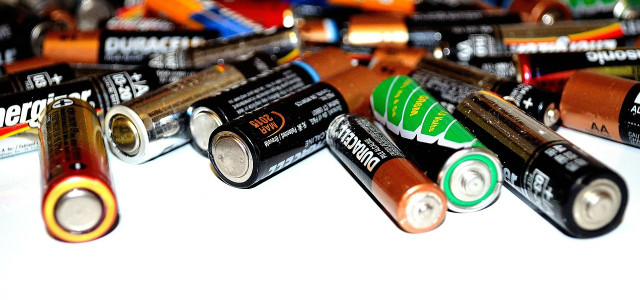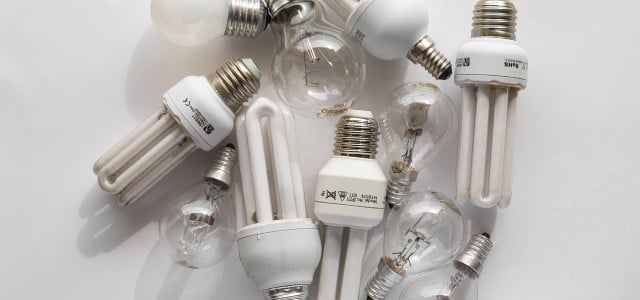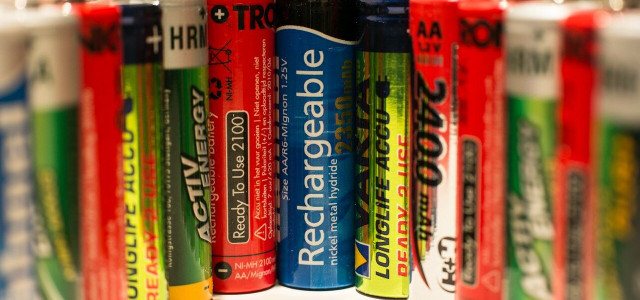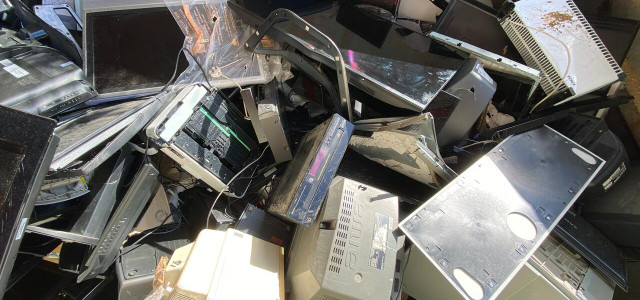How do you dispose of batteries sustainably? If you're wondering what to do with old batteries and where to recycle or properly dispose of them, you've come to the right place.
As our demands for gadgets and the latest technology grows, so too does our reliance on batteries to power our curiosities. Every year Americans purchase millions of batteries, but what happens when they’ve outlasted their use? Can they be recycled? How do you dispose of batteries once you’re done with them?
Why You Shouldn’t Just Throw Away Batteries
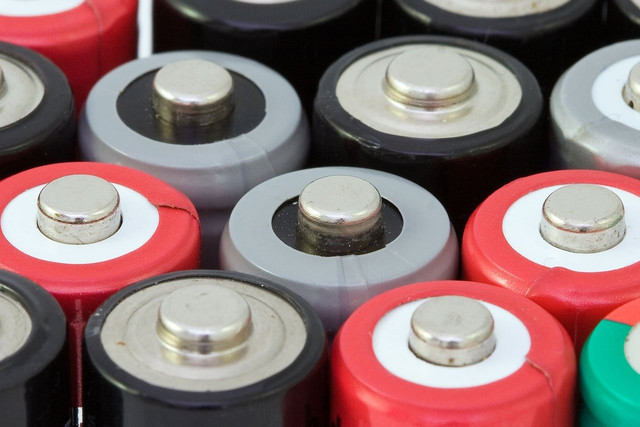
(Foto: CC0 / Pixabay / PublicDomainPictures)
Long story short, you should never throw away old batteries. Even after a battery has died, the compounds present in heavy metals are exceedingly toxic, even in small concentrations. The majority of batteries include hazardous chemicals including cadmium, lead, nickel, and mercury, while battery acid contains sulfuric acid. When hazardous chemicals and acids are improperly disposed of, they may leak into the environment and waterways.
The same goes for batteries: When incorrectly disposed of, their metals may be burned at landfill sites where the fumes evaporate into the air or combust into ash. This approach can harm the environment in the following ways:
- By evaporating into the air, these metals can damage lakes and streams when they become part of the rain cycle, leading to lead and acid exposure in the soil and water.
- The metals of the batteries that turn to ash have the potential to infiltrate the local soil and surface water supplies.
But even though you may be able to dispose of batteries safely in your community, recycling them is better for the environment because it keeps toxic metals and their contaminants out of landfills, which means they can’t seep into the local ecosystem. Recycling also conserves resources by reusing recovered plastic and metals to make new batteries.
Still, the question remains, how do you dispose of batteries properly?
How to Recycle Single-Use Batteries
When a battery is no longer useful, its type and chemistry will determine the waste management options you can use. It’s critical to properly dispose of batteries based on their type, as improper disposal can endanger safety and health.
General-purpose batteries like AA, AAA, C, and D batteries are usually made of either alkaline or zinc-carbon. Although in many communities it may be possible to safely get rid of these in your household trash (check first!), the EPA recommends sending these batteries to local reclamation programs or solid waste management.
- Find local recycling centers for alkaline and/or zinc-carbon batteries.
Lithium batteries, such as button cells, coin batteries, and lithium single-use batteries, can never be thrown in the trash and also should not be placed in municipal recycling bins. Instead, find the nearest recycling center that takes these kinds of batteries.
- Find local recycling centers for lithium and/or button cell batteries.
How to Recycle Reusable Batteries
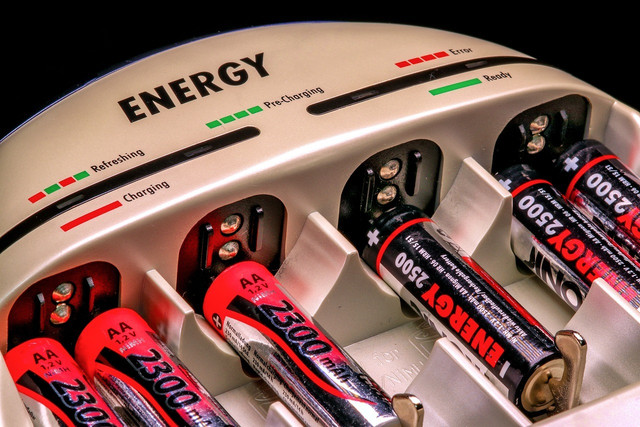


(Foto: CC0 / Pixabay / analogicus)
Rechargeable batteries should never be disposed of in the garbage or recycling bins. Instead, find a recycling facility in your area and take them there. Failing that, there are several other places you can take your batteries.
- Some retailers offer ‘takeback’ services, where you can leave your reusable batteries with them.
- Local hazardous waste collection programs.
- Specialized battery recyclers.
- Local electronics stores.
To limit the number of batteries thrown away in your household, consider investing in rechargeable batteries. When you buy rechargeable batteries, you’ll avoid having to dispose of single-use batteries. Throughout its life span, a rechargeable battery can replace hundreds of disposable batteries.
How to Prepare Batteries for Recycling
Different towns and cities in the United States have different battery recycling programs. To find out how recycled batteries are handled in your area; you should contact your local government.
When disposing of single-use batteries:
- Ensure that the terminals of each battery are covered or taped.
- Keeping the batteries in non-conductive plastic or cardboard will help prevent them from sparking up against each other.
- Be careful not to store them for a prolonged time period.
- Be sure to use proper safety equipment when handling a battery that has been damaged.
For rechargeable batteries:
- Detach the batteries from your electronic device.
- Cover each terminal end with tape to prevent unwanted conduction.
Where You Can Dispose of Your Old Batteries
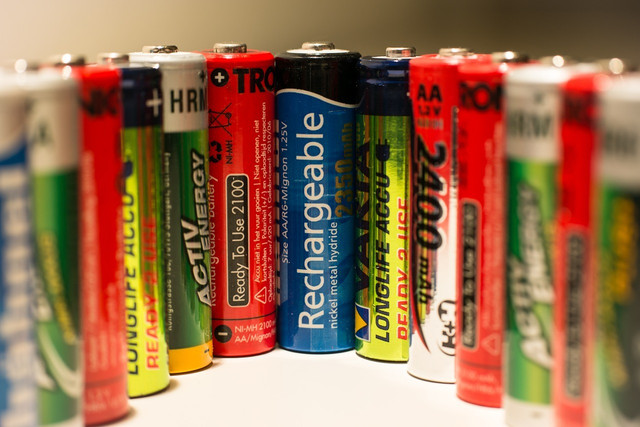


(Foto: CC0 / Pixabay / Didgeman)
Fortunately, in the United States, the Rechargeable Battery Recycling Corporation (RBRC), a non-profit public service company, established the “Call2Recycle!” initiative, which provides different recycling options for communities, stores, corporations, and governmental organizations. They also have a convenient battery drop-off point locator tool to help you find your nearest recycling area.
This firm primarily recycles four types of rechargeable batteries:
- Nickel-Cadmium (Ni-CD),
- Nickel-metal Hydride,
- Lithium-Ion,
- Small-Sealed Lead.
Rechargeable batteries can also be recycled and there are many major merchants across the US that accept rechargeable batteries for recycling. Such as:
- Best Buy,
- Black & Decker,
- Cingular Wireless,
- The Home Depot,
- Milwaukee Electric Tool,
- Orchard Supply,
- Porter-Cable Service Center,
- RadioShack,
- Remington Product Company,
- Sears,
- Staples,
- Target,
- US Cellular,
- Verizon Wireless,
- and Wal-Mart.
It’s worth keeping in mind that rechargeable batteries still contain metals like nickel and cadmium, therefore Utopia recommends whenever possible, sticking to using non-battery household items to minimize waste.
By learning how to dispose of batteries properly, and by recycling your old batteries, you can play your part in leaving a better world for future generations.
Read more:
- How to Recycle and Repurpose Old CDs and DVDs
- Aluminium Foil is Recyclable: Here’s How It’s Done
- Can You Recycle Styrofoam? It’s Complicated
Do you like this post?






